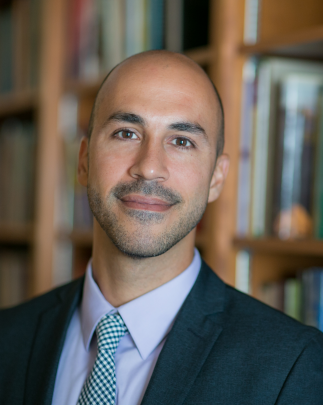A Salutary Inversion: A Review of Elizabeth Hinson-Hasty’s The Problem of Wealth by Devin Singh
Elizabeth Hinson-Hasty’s The Problem of Wealth makes an important addition to interventions into questions of wealth disparity, economic injustice, and socio-economic exploitation, as well as the resources in faith traditions that might combat such ills. One of the most remarkable contributions is Hinson-Hasty’s main premise: it is not poverty but wealth that marks the central problem to be interrogated and challenged. This is one of those truths that appears hidden in plain sight, as study after study takes on poverty as the social ill to be understood and ameliorated. While, of course, scholarly and policy conversations are enriched with approaches from both vantage points, surely wealth is seldom perceived as the problematic to analyze and confront. Inverting our comfortable assumptions about what is “normal,” Hinson-Hasty helps readers to question the view that poverty is the aberration to be studied in isolation, rather than directly correlated to practices of wealth building and hoarding, individualistic consumption practices, and middle- and elite class indifference.
Hinson-Hasty’s reorientation clarifies important insights one can glean from the preferential option for the poor as developed in Catholic Social Teaching and liberation theologies. A cursory reflection on this principle might lead one to assume that it means that the poor must remain the object of focus; as such, poverty would appear to be the requisite target of analysis and challenge. But the preferential option, particularly when understood together with the hermeneutical privilege of the poor, leads to an assumption of solidarity with the marginalized and oppressed, and issues an invitation to see the world through their eyes. Rather than objects, the poor emerge as subjects in history and society. While the poor look out on society and certainly recognize their poverty, what appears as an aberration and departure from their norm is wealth. By drawing wealth into our line of sight, Hinson-Hasty helps readers to assume a vantage point of the downtrodden and engage in “upward” investigation. Such a perspectival reversal might therefore be one of the most authentic deployments of the preferential option.
These same theological traditions proclaim the mystical presence of Jesus among the weak and vulnerable (Matt 25:31-46), which issues the reminder that, if anything, the problem of sin and brokenness is not to be found primarily among them, but among the self-proclaimed healthy, powerful, and affluent. Wealth-centered analysis such as Hinson-Hasty’s follows the theological intuition that it is here, among the prosperous, that a doctor is required (Luke 5:31). It also gives the lie to theological traditions that glorify wealth and prosperity as signs of divine presence and blessing.
The specificity of wealth itself is important here. Hinson-Hasty’s broad and rich reflections on attitudes toward wealth in religious traditions and in economic theory clarify that wealth is a complex category that requires interdisciplinary analysis. Wealth does not equal income level, for instance, but integrates questions of cash flow with access to credit, social mobility and capital, possession of other assets and resources, as well as consumption patterns.
The interreligious wisdom she offers complements this socioeconomic reading of wealth with a counternarrative. Rather than an ethic of scarcity and assumptions of isolated economic actors making utility maximizing decisions, she retrieves notions of abundance, community, mutuality and reciprocity to decenter the neoliberal tale of the self that dominates. The wealth of the wealthy is challenged and subverted with a notion of abundance accessible to all, and comes with an invitation to the affluent to seek this richer wealth. One of the most intriguing and original aspects of her contribution here is her engagement with non-Christian voices while remaining grounded in congregational praxis and commitment to Christian ministry. This is a productive and fruitful combination. It is no mere academic or theoretical exercise. On the contrary, this fusion suggests that it is specifically around matters of praxis and concrete engagement in the struggle for life that authentic dialogue across traditions might take place.
Devin Singh is Assistant Professor of Religion at Dartmouth College, where he teaches courses on modern religious thought, social ethics, and the philosophy of religion. His work explores the connections among religious, economic, and political thought and practice in the modern West. He is the author of Divine Currency: The Theological Power of Money in the West (Stanford University Press, forthcoming, 2018).

